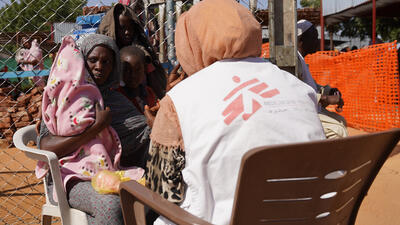
Work with us
We rely on a strong network of professionals to deliver lifesaving medical aid.

We provide medical assistance to people affected by conflict, epidemics, disasters, or exclusion from healthcare. Our teams are made up of tens of thousands of health professionals, logistic and administrative staff - most of them hired locally. Our actions are guided by medical ethics and the principles of impartiality, independence and neutrality.
Our independent medical care is made possible because of people like you. Find out how to support us.

As the world slowly emerged from the havoc caused by the COVID-19 pandemic, Médecins Sans Frontières (MSF) pulled together to respond to new emergencies in 2022, while continuing to assist communities affected by longstanding crises.

We rely on a strong network of professionals to deliver lifesaving medical aid.
Get a deeper insight into the work of MSF by contacting us.